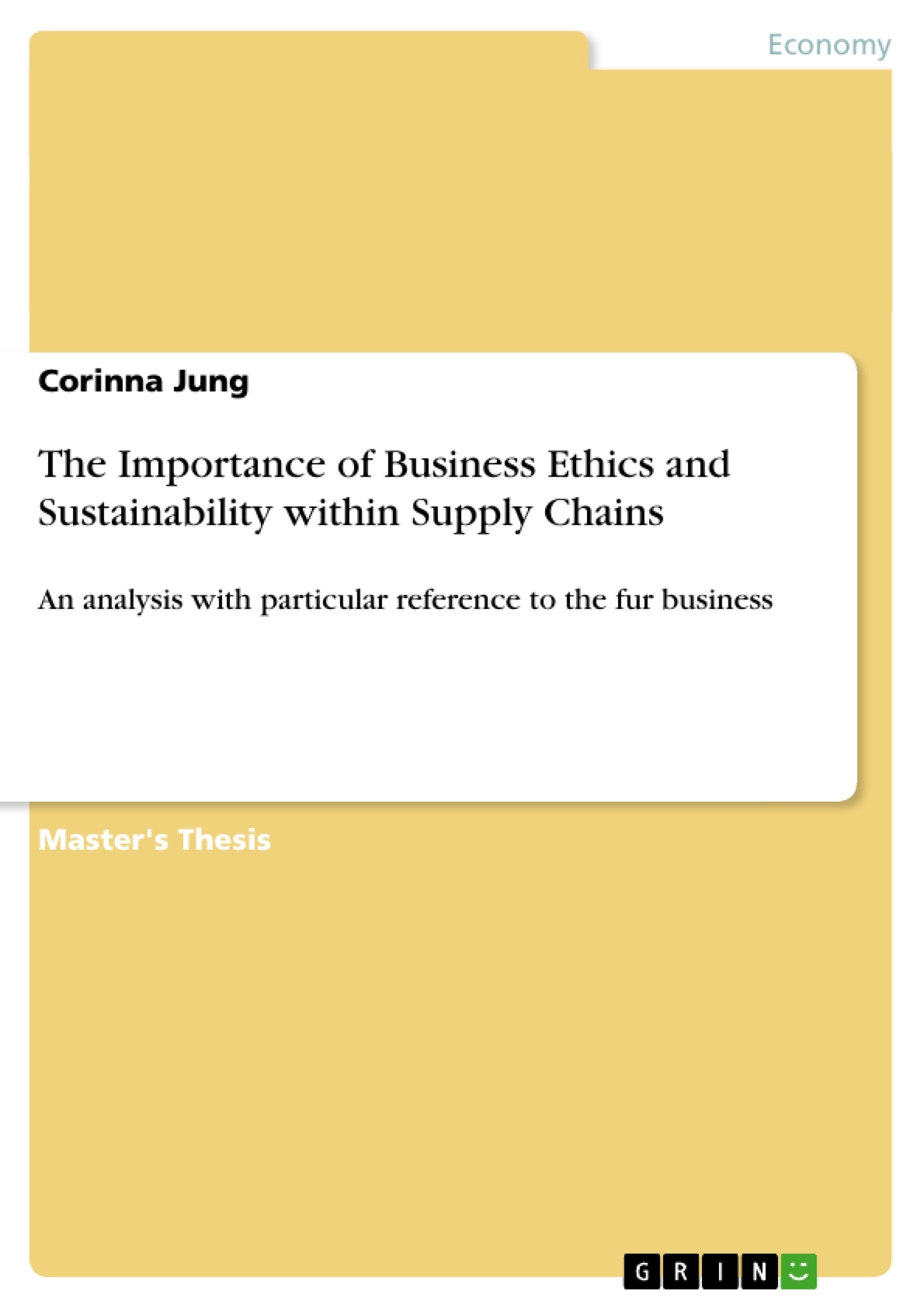1. Introduction
“Ethics are in vogue” is an assertion drawn after the International Herald Tribune (IHT) conference on luxury (Smale, 2007). The reason for this statement is the presumption of an emergent type of luxury consumer whose purchase decision is up to the ethical behaviour of business. Is this concept mere wishful thinking or does it reflect empirical reality, since the latter would void the expression “the devil wears Prada”. It is obvious, that the conventional way of economic development not any longer satisfies the needs of the world in which we live – “the environment is, without doubt, one area which is being subjected to greater public scrutiny” (Dembkowski and Hanmer-Llyod, 1994). Society increasingly requires a healthy living, innovative, efficient and safe technologies as well as a “stable and safe” natural and social environment (Jochem 2011). The media especially reports on ethical and sustainable business conduct and its affects on “human health, the ecosystem and future generations” (Bonacchi and Rinaldi, 2006).
Simultaneously to the increasing requirements of ethical and sustainable business conduct, the luxury fur demand is substantially growing. From US $ 456.99 million in 2001, the world fur outlook estimates an increase in sales up to US $ 854.13 million in 2011 (Parker, 2005) - fur auction houses sell “record-breaking” numbers. Fur re-emerges as a fashionable design material; especially younger designers are “fascinated with fur and use it in innovative ways” (Foreman, 2010). The material has also trickled down to the streets - the younger generation demands it more than ever; even child fashion designers use it for their collections (Vulsier, 2010).
The inherent question from these insights is whether both developments, namely an increasing requirement of sustainable and ethical business conduct as well as a growing fur fashion demand, are in line or in contrast to each other. Thus, is a fur producer ethical and sustainable? The author aims to gain knowledge whether a fur business responds to these external societal requirements regarding ethics and sustainability and whether ethical and sustainable or unethical and insustainable business conduct implicates advantages or disadvantages.
This study will examine the topics ethics and sustainability within a fur business. The research will examine the supply chain sustainability performance and ethicality of a fur producer and trader from a business and consumer perspective.
Inhaltsverzeichnis (Table of Contents)
- Abstract
- Keywords
Zielsetzung und Themenschwerpunkte (Objectives and Key Themes)
This dissertation investigates the ethical and sustainable business conduct of a fur producer and trader. It employs a mixed-methods approach, combining primary quantitative and qualitative data from a case study and a consumer survey with secondary data from business journals and academic articles. The goal is to provide a novel analysis of business ethics and sustainability within the fur industry, a sector largely unexplored in academic literature.
- Ethical and sustainable business practices in the fur industry
- Sustainability performance measurement in the fur sector
- Consumer behavior and ethical consumption choices related to fur
- The potential for competitive advantage through sustainable strategies within the fur industry
- The lack of academic research on ethics and sustainability within the fur business
Zusammenfassung der Kapitel (Chapter Summaries)
The abstract summarizes the purpose, approach, findings, originality, and target readership of the dissertation. It highlights the lack of a "blue sustainability strategy" by the examined fur producer and the disconnect between consumer ethical beliefs and purchasing habits. The keywords section lists the core terms and concepts explored in the dissertation.
Schlüsselwörter (Keywords)
Ethicality and morality, business ethics, sustainability, competitive advantage of sustainable strategies, sustainability performance measurement, fur industry, ethical luxury consumption.
Frequently Asked Questions
Is the fur industry considered ethical and sustainable?
The dissertation investigates this question, exploring whether fur production aligns with modern societal requirements for ethical business conduct and sustainability.
What is the "blue sustainability strategy" mentioned in the abstract?
The study finds a lack of such a strategy in the examined fur business, indicating a gap between corporate actions and sustainability goals.
How do consumers behave regarding ethical fur consumption?
Research shows a disconnect between consumers' ethical beliefs and their actual purchasing habits, even as demand for luxury fur grows.
Can sustainable strategies provide a competitive advantage in the fur sector?
The work explores the potential for businesses to gain an edge by responding to public scrutiny and implementing innovative, safe, and efficient technologies.
Why is there a lack of academic research on the fur industry's ethics?
The dissertation notes that the fur industry is largely unexplored in academic literature despite its growing economic impact and increasing public scrutiny.
- Arbeit zitieren
- Corinna Jung (Autor:in), 2011, The Importance of Business Ethics and Sustainability within Supply Chains, München, GRIN Verlag, https://www.grin.com/document/183156



